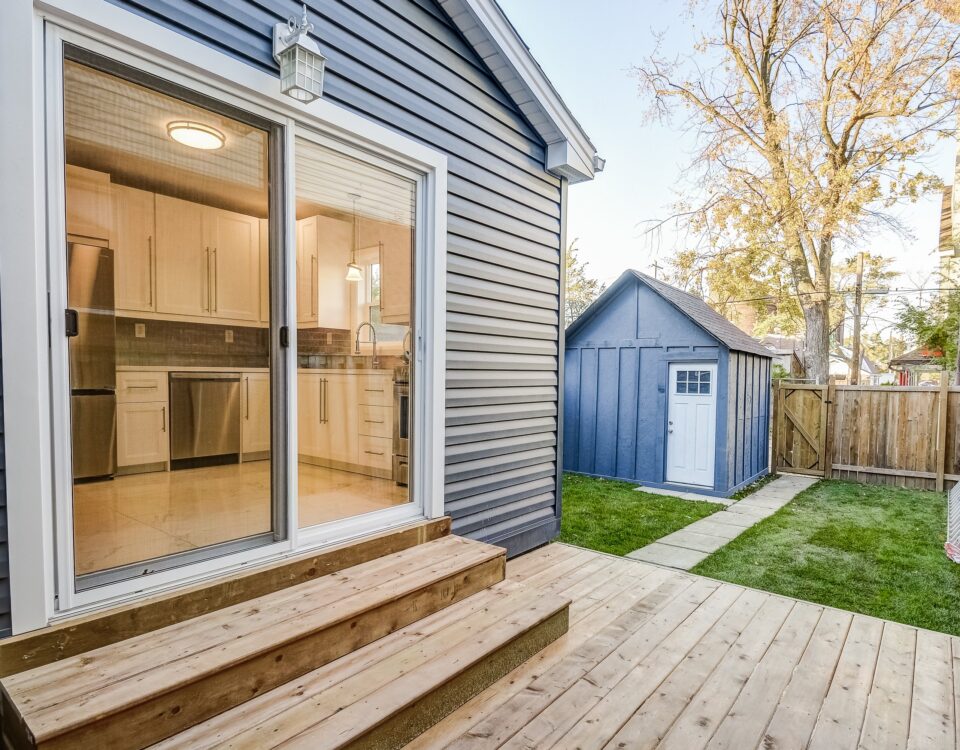
10 Essential Tips for Planning Your Home Construction Project
22 June 2023
How to Choose the Right Contractor for Your Renovation Project
22 June 2023Embarking on a home renovation project is an exciting endeavor that can enhance the comfort, functionality, and value of your home. However, proper budgeting and financing are crucial to ensure a successful renovation without causing financial strain. In this blog post, we will discuss essential tips to help you effectively budget for your home renovation and explore various financing options available to homeowners. By following these guidelines, you’ll be well-equipped to plan and finance your renovation project responsibly.
1. Assess Your Renovation Goals
Begin by clearly defining your renovation goals and priorities. Identify which areas of your home require improvement and determine the extent of the renovations you wish to undertake. Understanding your goals will enable you to allocate your budget more effectively and make informed decisions throughout the planning process.
2. Research and Estimate Costs
Research is key when estimating renovation costs. Gather information on materials, labor, and any professional services you may require. Consult multiple contractors or professionals to obtain accurate quotes for your specific project. Consider potential hidden costs, such as permits, taxes, and unexpected repairs. By conducting thorough research, you can develop a realistic budget for your renovation.
3. Create a Detailed Budget
Once you have estimated the costs, create a detailed budget that outlines each aspect of your renovation project. Allocate funds for materials, labor, permits, and contingencies. Prioritize your expenses based on your renovation goals and be sure to leave room for unexpected costs. A well-structured budget will help you stay organized and avoid overspending.
4. Explore Financing Options
There are various financing options available to homeowners for funding their renovation projects. These include:
- Personal Savings: Utilize your personal savings to fund your renovation project. This option eliminates the need for interest payments and allows for greater financial flexibility. However, it’s important to ensure that your savings are sufficient and won’t leave you financially vulnerable.
- Home Equity Loan: A home equity loan allows you to borrow against the equity in your home. This option typically offers a fixed interest rate and a lump sum payout, making it suitable for larger renovation projects. Ensure you have a solid repayment plan in place to avoid the risk of foreclosure.
- Home Equity Line of Credit (HELOC): Similar to a home equity loan, a HELOC allows you to borrow against your home’s equity. However, it provides a revolving line of credit that you can draw from as needed. HELOCs usually have variable interest rates, so it’s essential to consider potential fluctuations in your payments.
- Refinancing: If you have substantial equity in your home, refinancing your mortgage can provide funds for your renovation project. This option allows you to replace your current mortgage with a new one that includes the additional renovation costs. Evaluate the interest rates, closing costs, and the impact on your monthly mortgage payments before choosing this option.
- Personal Loans: Consider obtaining a personal loan from a bank or credit union. Personal loans are unsecured and typically have fixed interest rates. They are suitable for smaller renovation projects and can provide a lump sum upfront. However, interest rates may be higher compared to home equity loans.
5. Consult with Financial Professionals
Seek guidance from financial professionals, such as mortgage brokers or financial advisors, to explore the best financing options for your specific circumstances. They can provide valuable insights into interest rates, repayment terms, and the overall impact on your financial situation. Professional advice will help you make informed decisions that align with your long-term financial goals.
6. Compare Loan Terms and Interest Rates
When considering financing options, compare loan terms and interest rates from different lenders. Thoroughly read and understand the terms and conditions, repayment schedules, and any associated fees. Pay attention to interest rate fluctuations, penalties for early repayment, and potential hidden costs. Choosing the right loan with favorable terms can save you money in the long run.
7. Prioritize Your Renovation Needs
If your budget doesn’t allow for all the renovations you desire, prioritize your needs over wants. Focus on essential repairs, structural improvements, or upgrades that significantly impact your daily life or home value. You can always plan for additional renovations in the future when finances allow.
8. Obtain Multiple Quotes
Before hiring contractors or professionals, obtain multiple quotes to ensure competitive pricing. Request detailed estimates that include labor, materials, and any associated costs. Review the quotes carefully, comparing not only the prices but also the quality of work and reputation of the providers. Select professionals who offer the best value for your budget.
9. Allocate Contingency Funds
Allocate a portion of your budget as a contingency fund to account for unexpected expenses that may arise during the renovation process. As a general rule, set aside around 10-20% of your total budget for contingencies. This will help mitigate financial stress and ensure that unforeseen issues don’t compromise the completion of your project.
10. Monitor Expenses and Adjust as Needed
Throughout the renovation process, track your expenses and compare them to your budget regularly. Keep all receipts and invoices for future reference. If you find that you’re exceeding your budget, identify areas where you can make adjustments without compromising the quality or integrity of the project. Being proactive and making necessary changes will help you stay within your financial limits.
Budgeting and obtaining financing for your home renovation project require careful planning and consideration. By assessing your renovation goals, estimating costs, creating a detailed budget, and exploring financing options, you can ensure a smooth and financially responsible renovation process. Remember to consult with professionals, compare loan terms, and prioritize your renovation needs. With proper financial planning, you’ll be on your way to transforming your home into the space of your dreams.





